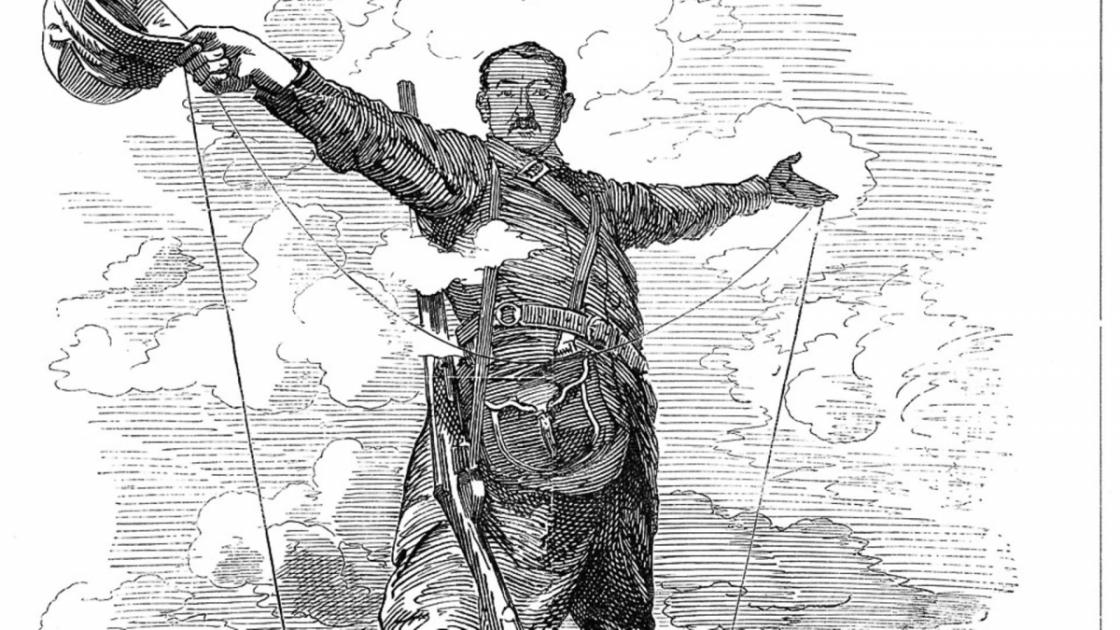In 1877, before he had made his fortune via the founding of De Beers Consolidated Mines and the British South Africa Company, the imperialist par excellence Cecil Rhodes had dictated a part of his will thusly: “[To make provision] for the establishment, promotion and development of a Secret Society, the true aim and object whereof shall be for the extension of British rule throughout the world.” This was to include, “The ultimate recovery of the United States of America.”1Michael Howard, The Lessons of History (1992) pg. 66.
This grandiose vision was pragmatically tempered in the final version of his will (1902), which instead set up an eponymous scholarship, the stated intention of which was to, “promote unity among English speaking nations.” Thus was the Rhodes Scholarship, which sees a handful of America’s future leaders shipped off to Oxford each year, conceived of and brought into being.2Cecil Rhodes (London: 1902). William Stead, The Last Will and Testament of Cecil John Rhodes, with Elucidatory Notes, to which are Added some Chapters describing the Political and Religious Ideas of the Testator.
Just looking over a list of some of those selected, the influence of British thinking on American grand strategy in the century that followed becomes all too explicable: From Stanley Hornbeck, special advisor to FDR’s Secretary of State Cordell Hull, the longest serving Secretary of State in U.S. history, to J. William Fullbright, senator and longest tenured Chair of the Senate Foreign Relations Committee (1945-1974), to JFK and LBJ’s Secretary of State Dean Rusk, and Walt Rostow, LBJ’s National Security Advisor: these men were among the most influential hands steering U.S. foreign policy from the 1930s onward.
Later architects of U.S. policy to pass through Oxford via the program include Richard Haas, President of the Council on Foreign Relations and Director of Policy Planning for George W. Bush (2001-2003), Joseph Nye, chair of the National Intelligence Council and Deputy Secretary of Defense under Bill Clinton3Himself a Rhodes Scholar. (1993-1995), Strobe Talbot, Deputy Secretary of State and lead architect of Clinton’s Russia and NATO expansion policies (1994-2001), Susan Rice, Barack Obama’s National Security Advisor (2013-2017), Ash Carter, Secretary of Defense under Obama (2015-2017), and arguably the worst U.S. Ambassador to Russia ever, Michael McFaul (2012-2014).
As an aside, given the catastrophic performance of these later figures it is worth noting that apart from absorbing British principles of imperial strategy—the work of the Oxonian Halford Mackinder (1861-1947) clearly having influenced that of the foundational American realist Nicholas Spykman (1893-1943), who in turn greatly influenced John Foster Dulles (Dwight Eisenhower’s Secretary of State from 1953-1959)—American policy architects seem to have also imbibed the abiding British suspicion of the Russians, as well as their tactics for dealing with the “barbarians,” as the aforementioned ex-Ambassador McFaul described them on Twitter a week ago.
From the opportunistic exploitation of conveniently located Muslim jihadists4See M. Gammer, Muslim Resistance to the Tsar: Shamil and the Conquest of Chechnya and Dagestan (1994)., to the use of a near-hysterical and monomaniacal press to shape public opinion5With France no longer a threat following the defeat of Napoleon, there came in quick succession On the Designs of Russia (1828), On the Practicality of an Invasion of British India (1829), Journey to the North of India (1834), and India, Great Britain, and Russia (1839) to name just a few of the titles that preceded the instigation of the pointless death trap of the Crimean War (1853-1856)., to the extreme sensitivity of the metropole to any apparent threat ti their freedom of action whatsoever6“The flag of England, which was wont to wave proudly over all the waters of the world, is insulted, and the commercial enterprise of merchants crippled and defeated.” Why? Because “the Black Sea cannot be navigated but by permission of the Muscovite.”, the parallels really are striking.7See J. Gleason, The Genesis of Russophobia in Great Britain (1950) for more gems like the above.
Of course, apart from world encompassing imperialist frameworks and Russophobia, the British also introduced their American counterparts to the central banking and government propaganda apparatuses necessary to expanding Washington’s cheaply won contiguous land empire of the nineteenth century abroad in the twentieth. Having adopted these methods, Washington could, when Britain’s strength was finally exhausted, “Pick up the torch of empire from our [Britain’s] still cooling fingers.”8Sir Ronald Henry Amherst Storrs, British Ambassador to Greece, 1947.
Ideas are often given short shrift, and not only in mainstream analyses of the left and right, but “Constantly,” in the words of Justin Raimondo, “Referring to abstract ‘forces’ when they examine and attempt to explain historical patterns.”9From the preface of Wall Street, Banks, and American Foreign Policy. But also, to a certain extent, in libertarian realist analyses of U.S. foreign policy, such as Murray Rothbard’s vital Wall Street, Banks, and American Foreign Policy, where corporate interests and government power find their outward manifestations in the Council on Foreign Relations, the Trilateral Commission, or the wider military industrial complex.
Perhaps it is because, unlike other metrics, the strength of an idea or its holder’s sincerity are difficult to measure.
Whatever the case may be, while there is no doubt that the permanent jobs programs and capturable rents spawned by the imperial project are, per the logic of their location within the superstructure, constantly seeking reasons for their being, methodological individualism, the study of events in terms of individual human actions, cannot do without the incorporation of ideology.
Whether their post hoc rationalizations, heartfelt feelings, or permanent psychological crutches, liberal, Anglo-American imperialism has its ardent defenders. Then as now, many doubtless believe what they say.








